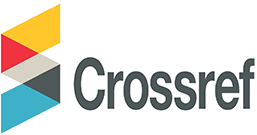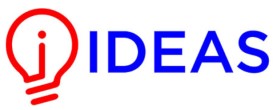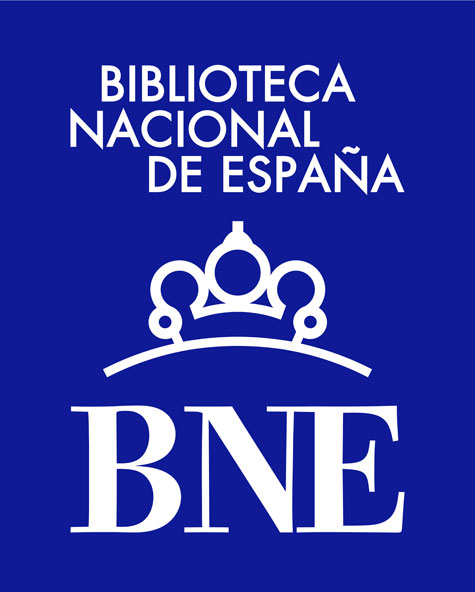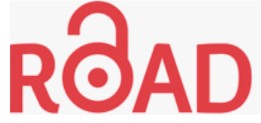Max Stirner y G. W. F. Hegel sobre la “lucha por el reconocimiento” en la educación
DOI:
https://doi.org/10.51896/easc.v2i2.712Palabras clave:
Anarquismo, autoridad, historia de la educación, Hegel, esclavitud, Stirner, filosofía de la educación, política educacionalResumen
En este artículo comparo y contrasto lo que Max Stirner tiene que decir sobre la filosofía y la política de la educación en dos de sus obras, un texto no tan conocido titulado El falso principio de nuestra educación (1842), y el mucho más conocido El único y su propiedad, que se publicó tres años después. En ambas obras, Stirner aborda críticamente la filosofía de G. W. F. Hegel. Sin embargo, la relación de Stirner con Hegel es ambivalente. Aunque en varios aspectos su pensamiento es reconociblemente hegeliano, sin embargo, rechaza tanto a Hegel como lo acepta. Esto es especialmente cierto en lo que respecta a las opiniones de Stirner sobre la educación. Dos aspectos del pensamiento de Hegel son relevantes para comprender la teoría de la educación de Stirner. El primero es lo que Hegel tiene que decir sobre el dominio y la esclavitud y la "lucha por el reconocimiento" en su Fenomenología del espíritu (1807). La segunda es la teoría de la educación que Hegel expone en su Filosofía del espíritu, o en el tercer volumen de su Enciclopedia de las ciencias filosóficas (1817), y que repite cuatro años después en su Filosofía del derecho (1821). Hegel no relaciona por sí mismo estas dos cosas. Son pensadores posteriores, incluido Max Stirner, quienes lo han hecho. Mi argumento es que, aunque las opiniones expresadas en ambas obras de Stirner se inspiraron en una lectura particular de Hegel, sin embargo, en El falso principio de nuestra educación, la lectura en cuestión es muy diferente y superior a la de El único y su propiedad, porque no es nihilista. La teoría de la educación que se expone en El falso principio de nuestra educación es un relativo término medio significativo entre la filosofía de Hegel, y los enfoques mucho más críticos de la pedagogía, que surgieron en el siglo XX, especialmente en los escritos de Paolo Freire e Ivan Illich.
Descargas
Citas
Allen, J. (1946). Hegel: His Philosophy and Its Educational Implications. Peabody Journal of Education, 24(3), 151-158. https://doi.org/10.1080/01619564609536026
Amster, R., DeLeon, A., Fernandez, L., Nocella, A. J. & Shannon, D. (eds.) (2009). Contemporary Anarchist Studies: An Introductory Anthology of Anarchy in the Academy. Routledge. https://doi.org/10.4324/9780203891735
Aristotle. (1984). The Complete Works of Aristotle. Ed. Jonathan Barnes. Princeton University Press.
Arvon, H. (1954). Aux sources de l’existentialisme: Max Stirner. Presses Universitaires de France.
Bakunin, M. (1973 [1871]). Selected Writings. Jonathan Cape.
Baldelli, G. (2010 [1971]). Social Anarchism. Transaction Books.
Bookchin, M. (1995). Re-enchanting Humanity: A Defense of the Human Spirit Against Antihumanism, Misanthropy, Mysticism and Primitivism. Continuum.
Bookchin, M. (1996). Social Anarchism or Lifestyle Anarchism: An Unbridgeable Chasm. AK Press.
Carlson, D. (2002). Recognizing Ourselves Hegel and the Master/Slave Struggle in Education. In Dennis Carlson, Leaving Safe Harbors: Toward a New Progressivism in American Education and Public Life (pp. 69-97). Taylor & Francis.
Clark, J. P. (1976) Max Stirner’s Egoism. Freedom Press.
Clark, J. P. (1984). What is Anarchism? In Pennock, J. R. & Chapman, J. W. (eds.), Nomos XIX: Anarchism (pp. 3-28). New York University Press.
Cristi, R. (2005). Hegel on Freedom and Authority. University of Wales Press.
Darder, A., Torres, R. D. & Baltodano, M. (2017). The Critical Pedagogy Reader. Routledge.
De George, R. T. (1978). Anarchism and Authority. In Pennock, J. R. & Chapman, J. W. (eds.), Nomos XIX: Anarchism (pp. 91-110). New York University Press.
De Ridder, W. (2008). Max Stirner, Hegel and the Young Hegelians: A Reassessment. History of European Ideas, 34(3), 285-97. https://doi.org/10.1016/j.histeuroideas.2007.11.001
Dunne, J. (2003). Arguing for Teaching as a Practice: A Reply to Alasdair MacIntyre. Journal of Philosophy of Education, 37(2), 353-69. https://doi.org/10.1111/1467-9752.00331
Dunne, J. (2020). Learning from MacIntyre about Learning: Finding Room for a Second-Person Perspective? Journal of Philosophy of Education, 54(5), 1147-66. https://doi.org/10.1111/1467-9752.12513
Ehrlich, H. J. (ed.) (2013). The Best of Social Anarchism. Sharp Press.
Foucault, M. (1994). Ethics. Essential Works 1954-1984. Penguin Books.
Freire, P. (1972). Pedagogy of the Oppressed. Penguin Books.
Gartner, A. (ed.) (1973). After Deschooling What? Harper & Row.
Gaus, G. F. & Chapman, J. W. (1978). Introduction. In J. R. Pennock and J. W. Chapman (eds.), Nomos XIX: Anarchism (pp. xv-xlv). New York University Press
Hegel, G. W. F. (1971 [1830]). Philosophy of Mind: Being Part Three of the Encyclopaedia of the Philosophical Sciences. Trans. William Wallace & A. V. Miller. Foreword J. N. Findlay. Clarendon Press.
Hegel, G. W. F. (1975 [1830]). Logic: Being Part One of the Encyclopaedia of the Philosophical Sciences. Trans. William Wallace. Foreword J. N. Findlay. Clarendon Press.
Hegel, G. W. F. (1977 [1807]). Phenomenology of Spirit. Trans A. V. Miller. Foreword J. N. Findlay. Oxford University Press.
Hegel, G. W. F. (1979 [1821]). Philosophy of Right. Trans & Notes T. M. Knox. Oxford University Press.
Higgins, C. (2003). MacIntyre’s Moral Theory and the Possibility of an Aretaic Ethics of Teaching. Journal of Philosophy of Education, 37(2), 279-92. https://doi.org/10.1111/1467-9752.00326
Hinchman, L. P. (1984). Hegel’s Critique of the Enlightenment. University of Florida Press.
Illich, I. (1973a). Deschooling Society. Penguin Books.
Illich, I. (1973b). Celebration of Awareness: A Call for Institutional Revolution. Penguin Books.
Kahn, R. & Kellner, D. (2007). Paulo Freire and Ivan Illich: Technology, Politics and the Reconstruction of Education. Policy Futures in Education, 5(4), 431-448. http://dx.doi.org/10.2304/pfie.2007.5.4.431
Kahn, R. (2009). Anarchic Epimetheanism: The Pedagogy of Ivan Illich. In Amster et. al. (eds.), Contemporary Anarchist Studies (pp. 125-35). Routledge.
Kant, I. (2006 [1784]). Political Writings. Cambridge University Press.
Kyrilo, J. D. (ed) (2013). A Critical Pedagogy of Resistance: 34 Pedagogues We Need to Know. Brill.
Lilge, F. (1974). Philosophy and Education in Hegel. British Journal of Educational Studies, 22(2), 147-165. https://doi.org/10.1080/00071005.1974.9973403
Locke, J. (1978 [1690]). Two Treatises of Government. Dent.
MacIntyre, A. (1990). Three Rival Versions of Moral Enquiry: Encyclopaedia, genealogy and Tradition. Duckworth.
MacIntyre, A. (2006). Aquinas and the Extent of Moral Disagreements. In Selected Essays, Volume 2, Ethics and Politics (pp. 64-84). Cambridge University Press.
MacIntyre, A. (2007 [1981]). After Virtue: A Study in Moral Theory. Notre Dame University Press.
MacIntyre, A. (2016). Ethics in the Conflicts of Modernity: An Essay on Desire, Practical Reasoning and Narrative. Cambridge University Press.
Marx, K. & Engels, F. (2010 [1845]). Collected Works. Lawrence & Wishart.
Miller, D. (1984). Anarchism. Dent.
Murphy, J. B. (2013) The Teacher as the Forlorn Hope of Modernity: MacIntyre on Education and Schooling. Revue Internationale de Philosophie, 67, 264(2), 183-199. https://shs.cairn.info/article/E_RIP_264_0183?lang=en
Palmer, J. A. (2001). Georg Wilhelm Friedrich Hegel. In Joy A. Palmer, Fifty Major Thinkers on Education: From Confucius to Dewey (pp. 84-89). Routledge.
Panizzon, D. (2013). Ivan Illich: Renegade, Academic, Intellectual and Pastor. In Kyrilo, J. D. (ed.), A Critical Pedagogy of Resistance: 34 Pedagogues We Need to Know (pp. 81-84). Brill.
Patten, A. (2005 [1999]). Hegel’s Idea of Freedom. Oxford University Press.
Plato. (1997). Complete Works. Ed., Intro & Notes by John M. Cooper. Hackett.
Rousseau, J.-J. (1974 [1762]). Émile: Or, On Education. Dent.
Rousseau, J.-J. (1975 [1762]). The Social Contract and Discourses. Dent.
Rousseau, J.-J. (2001 [1764]). Eighth Letter Written from the Mountain. In Christopher Kelly & Eve Grace (eds.), Letter to Beaumont, Letters Written from the Mountain and related writings (pp. 256-282). University Press of New England.
Serrano, I. & Kreber, C. (2014). Professionalization of the University and the Profession as Macintyrean Practice. Studies in the Philosophy of Education, 34, 551-564. https://doi.org/10.1007/s11217-014-9453-0
Sinnerbrink, R. (2007). Understanding Hegelianism. Acumen Books.
Smith, N. & Dunstall, A. (2022). Alasdair MacIntyre, Universities and the Common Good. European Journal of Philosophy, 30(3), 1173-86. https://doi.org/10.1111/ejop.12696
Stepelevich, L. S. (1976). Hegel and Stirner: Thesis and Antithesis. Idealistic Studies, 6(3), 263-78. https://doi.org/10.5840/idstudies19766318
Stepelevich, L. S. (1985). Max Stirner as Hegelian. Journal of the History of Ideas, 46(4), 597-614. https://www.jstor.org/stable/2709539
Stepelevich, L. S. (2006). Ein Menschensleben: Hegel and Stirner. In Moggach, D. (ed.), The New Hegelians (pp. 166-75). Cambridge University Press.
Stirner, M. (1967 [1842]). The False Principle of Our Education: Or, Humanism and Realism. Ralph Myles.
Stirner, M. (1982 [1845]). The Ego and its Own: The Case of the Individual Against Authority. Rebel Press.
Tubbs, N. (2005). Hegel. Journal of Philosophy of Education, 39(2), 329-55. https://doi.org/10.1111/j.0309-8249.2005.00441.x
Tubbs, N. (2008). Education in Hegel. Continuum Books.
Watt, A. J. (1981). Illich and Anarchism. Educational Philosophy and Theory, 13(2), 1-15. https://doi.org/10.1111/j.1469-5812.1981.tb00481.x
Winfield, R. D. (2013). Hegel’s Phenomenology of Spirit: A Critical Rethinking in Seventeen Lectures. Rowman & Littlefield.
Wisser, R. (1987). The Theme of the ‘Appropriator’ in the Philosophy of Max Stirner. Philosophy and History, 20(2), 131-137. https://doi.org/10.5840/philhist198720258
Descargas
Publicado
Cómo citar
Número
Sección
Licencia

Esta obra está bajo una licencia internacional Creative Commons Atribución-NoComercial 4.0.
Usted es libre de:
- Compartir — copiar y redistribuir el material en cualquier medio o formato
- Adaptar — remezclar, transformar y construir a partir del material
Bajo los siguientes términos:
- Atribución — Usted debe dar crédito de manera adecuada, brindar un enlace a la licencia, e indicar si se han realizado cambios. Puede hacerlo en cualquier forma razonable, pero no de forma tal que sugiera que usted o su uso tienen el apoyo de la licenciante.
- NoComercial — Usted no puede hacer uso del material con propósitos comerciales.



































